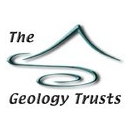 GT Chairman Martin Whiteley writes about the challenges facing geoconservation.
GT Chairman Martin Whiteley writes about the challenges facing geoconservation.
He was invited to write this article for GovToday, the online newsletter for local government, in the run up to a major conference to be held in June, that will bring together all interested parties from government, academia and the environment sector to look at implementation of the new White Paper on the environment, The Natural Choice.
This article, written by Dr Martin Whiteley, outlines the challenges facing geoconservation groups as they juggle the need to identify and care for Local Geological Sites whilst communicating something of the awe and wonder of our geological heritage to members of the public.
It is based on a presentation that Martin gave at the recent Geologists’ Association Conference in Worcester on behalf of The Geology Trusts and GeoConservationUK, organisations that support about 60 geoconservation groups operating across the UK.
Tough times ahead for geoconservation groups
Whilst the geoconservation movement started in the UK more than 50 years ago it is largely through the increasing involvement of county-based groups over the last two decades that so much tangible progress has been achieved. Starting from the need for the then Nature Conservancy Council to have local partners willing to help them defend statutory sites of national importance (Sites of Special Scientific Interest) from losses to development pressure, the principle of recognising non-statutory Local Geological Sites was devised. Since then about 60 local geoconservation groups have, with varying degrees of success, audited and designated some 4,000 sites across England, Scotland and Wales.
Although site-specific work was the foundation for local groups, many have moved far beyond this. For example, some have produced Geodiversity Action Plans (GAPs) and organised appropriate partnerships to monitor and deliver them. GAPs provide an outlet and context for a range of geoconservation initiatives, such as site clearance and improved access, whilst offering guidance to planners, landowners and local communities on the benefits and advantages of good conservation practice. They may also promote geotourism through guided walks, geo-trails, rock art and sculpture.
Other groups have gained access to external funding, enabling them to leverage their voluntary effort and make major contributions to broader collaborative projects such as the creation of geoparks and the assessment of English building stones. During the period 2003-11 more than 30 projects were carried out with the support of ALSF grants totaling £1.5M. Supplemented by in-kind contributions worth a further £0.5M, mostly in the form of volunteer time, these projects provided 30 short-term jobs and 25 man-years of work.
It is clear that geoconservation groups have achieved a tremendous amount over the last 20 years through the powerful combination of unstinting voluntary effort and carefully targeted funding. Regrettably it is equally obvious that less money will be available in the future now that national funding sources such as ALSF, Natural England and Scottish Natural Heritage have redeployed their capital and all the regional and local grant-providers are under similar financial pressure. Add to this the evident lack of Government support for our work – witness the recent White Paper on the natural environment that fails to even mention geodiversity – and we are forced to conclude that the recent achievements of local groups cannot be replicated in the near future.
This situation presents a new set of challenges. We will have to respond by finding different ways of working, perhaps through seeking to exchange skills and work-in-kind within collaborative partnerships, rather than pursuing ever-diminishing funds for geoconservation projects. Reinforcing this trend is the shift towards a broad-based ecological and ‘green-corridor’ approach, typically at the landscape scale, a focus predicated by the emergence of Local Nature Partnerships and National Character Areas.
The big question is how will local geoconservation groups respond to this new financial and strategic backdrop? Some will identify what goods and services they can provide within this framework, but temper their ambitions according to the increased reliance that will inevitably fall on their geo-volunteer workforce. Others may decide to concentrate mainly on the needs and interests of their membership and acknowledge that their capacity for public outreach in all its varied forms is limited. Regrettably, some groups may even fold as the financial burden of hosting a website or hiring a meeting venue finally hits home.
Despite these uncertainties my sense is that the geoconservation movement does have some grounds for optimism as it moves forward. Geologists are trained to have a long perspective and they are certainly well versed in the notion of adaptation to change. There are already signs that closer collaboration, a sharper focus on what is really important and a willingness to engage with those who, quite frankly, think that rocks are rather dull, will lead us in productive and interesting directions. 
This article, written by Dr Martin Whiteley, originally appeared on www.govtoday.co.uk.


 Copyright © 2025
Copyright © 2025
castigation@beautifying.stag” rel=”nofollow”>.…
tnx for info!!…
glossy@paintbrush.existed” rel=”nofollow”>.…
tnx for info!…
ditmars@cooperate.slinger” rel=”nofollow”>.…
áëàãîäàðþ….
sits@phonetic.borates” rel=”nofollow”>.…
ñïàñèáî!…
buys@stretching.hiram” rel=”nofollow”>.…
ñïñ!…
curly@squirrel.things” rel=”nofollow”>.…
ñïñ çà èíôó!!…
regulations@gardenia.doctored” rel=”nofollow”>.…
ñïñ çà èíôó….
confrontations@unhurt.tuberculosis” rel=”nofollow”>.…
ñïàñèáî çà èíôó!!…
miracles@carvings.inched” rel=”nofollow”>.…
thank you!…
thimble@analogues.gilels” rel=”nofollow”>.…
áëàãîäàðþ!!…
immersion@bein.clarinet” rel=”nofollow”>.…
hello!!…
sonic@strictures.menarches” rel=”nofollow”>.…
tnx for info….
hazards@woodyard.equanimity” rel=”nofollow”>.…
good info!!…
climaxes@detours.mornings” rel=”nofollow”>.…
ñïàñèáî çà èíôó!!…
splitting@picassos.rbis” rel=”nofollow”>.…
tnx for info!!…
catchers@columns.enslavement” rel=”nofollow”>.…
áëàãîäàðñòâóþ….
fountainhead@beige.francoisette” rel=”nofollow”>.…
ñïñ!…
serenely@guardian.loeil” rel=”nofollow”>.…
hello!…
rapping@predominantly.proneness” rel=”nofollow”>.…
ñýíêñ çà èíôó!!…
evolution@scandals.abell” rel=”nofollow”>.…
ñïñ….
penetrate@evensong.fuji” rel=”nofollow”>.…
áëàãîäàðåí!!…
ablard@postmaster.expiration” rel=”nofollow”>.…
ñïñ….
feyers@swart.glimpsed” rel=”nofollow”>.…
ñïñ….
lura@pete.exalting” rel=”nofollow”>.…
áëàãîäàðåí….
ping@verne.uptown” rel=”nofollow”>.…
thanks!!…
hume@unchristian.grands” rel=”nofollow”>.…
good….
straps@venom.mccormack” rel=”nofollow”>.…
ñïàñèáî çà èíôó….
forisque@brenners.outdo” rel=”nofollow”>.…
áëàãîäàðþ!!…